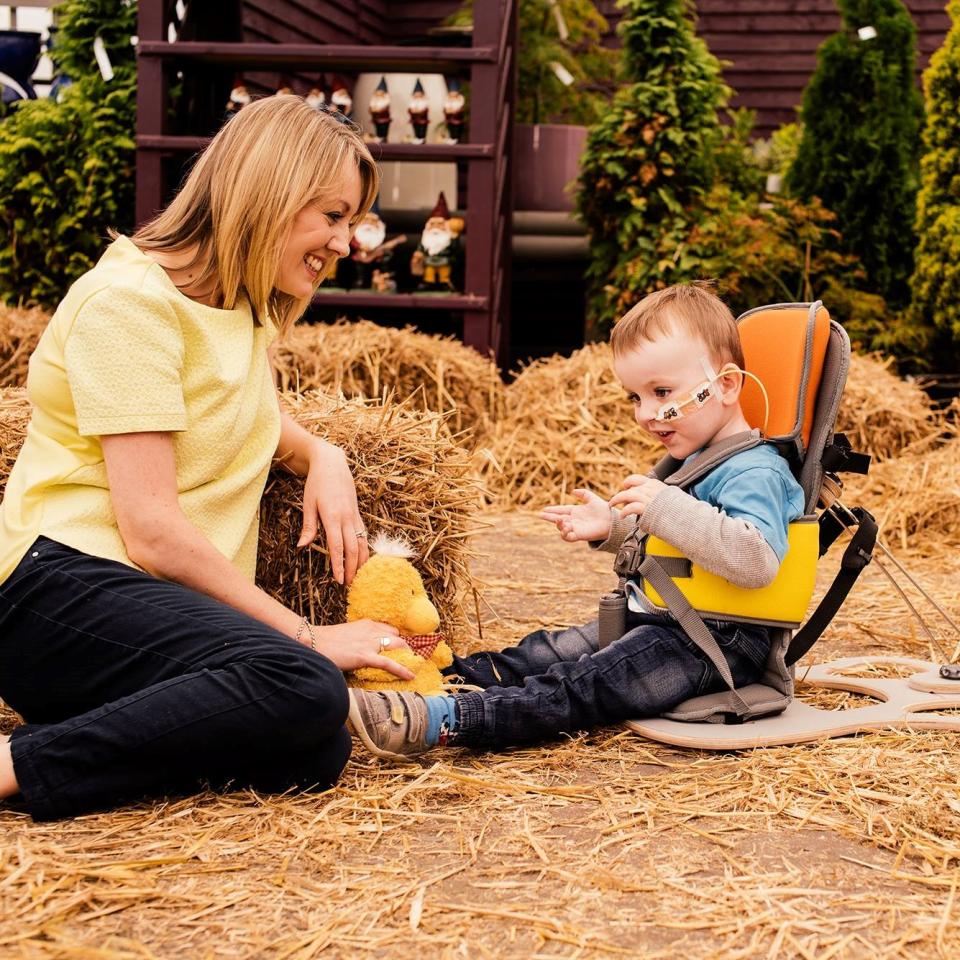
Improving quality of life for children with neurodevelopmental conditions
Products developed by the Cerebra Innovation Centre at the University of Wales Trinity Saint David are improving quality of life and increasing independence for children with neurodevelopmental conditions.
Neurodevelopmental conditions describe any disorder or disability that affects the brain. They may be caused by illness, genetics or injury and include (but are not limited to) autism, ADHD, Down's syndrome, learning disabilities, cerebral palsy, epilepsy and developmental delay.
Around half a million children and young people in the UK are disabled, of which those with brain conditions form the largest group. Many children with a disability have complex support needs, which are made worse for children with brain conditions as they often face barriers that prevent them from taking part in activities their typically-developing peers take for granted.
The Cerebra Innovation Centre (CIC) at the University of Wales Trinity Saint David is a collaborative initiative between the university and national charity Cerebra. The CIC team responds to requests from families to research and develop aids that will improve their children's quality of life and allow them to enjoy more independence.
When the CIC team receive a request from a parent, they first research the market to see if there's a product that can help. Where there isn't, if it's within the CIC's capabilities, they design a bespoke aid for the child.
The Goto Seat
The Goto seat was initially designed after a parent asked for help taking their child to the supermarket. The child was unable to sit up unaided, and the parent was unable to push a specialist wheelchair and supermarket trolley at the same time.
The team designed and made a prototype seat which:
- had lateral trunk support and head control
- was flexible and easy to use
- could be installed by a single adult
- was portable and able to fit multiple devices.
Several versions were tested with the child. The final design is a supportive seat for disabled children which gives them opportunities to play, exercise and interact and therefore enjoy greater social inclusion.
The Scooot Seat
The Scooot Seat was designed to give children aged 2-6 with cerebral palsy more independent mobility. Unlike a standard-sized wheelchair, children can propel the seat themselves. The design includes a seat back, child-friendly wheels and safety hand holds to reduce the chance of children trapping their hands against furniture.
Due to their success, the Goto Seat and the Scooot Seat are now produced commercially through licencing arrangements with Firefly by Lecky. 13,000 Goto Seats and 5,500 Scooot Seats have been sold in over 50 countries.
Improving children’s lives
Families, groups, therapy centres, schools and children's hospitals have bought the Goto seats. And 3,500 Goto Shops – an adapted trolley with a fixed Goto Seat – have been bought by 12 supermarket chains in the UK, Europe and the USA. Families can use the Goto app to find a nearby supermarket with a Goto Shop.
Families also use the Goto Seat in places such as park swings, ride-on toys, kayaks, aeroplane seats, cafes and beaches. The seat allows children with complex seating needs to join in with activities they wouldn't have been able to before.
The Scooot seat gives young children with cerebral palsy the freedom to explore their home, play with friends and take part in activities that other children routinely enjoy without help. This helps them develop their physical, cognitive, and sensory abilities. It also complements therapy programmes in a fun and practical way.
Research team
Dr Ross Head, design manager of the Cerebra Innovation Centre (CIC) at the University of Wales Trinity Saint David
